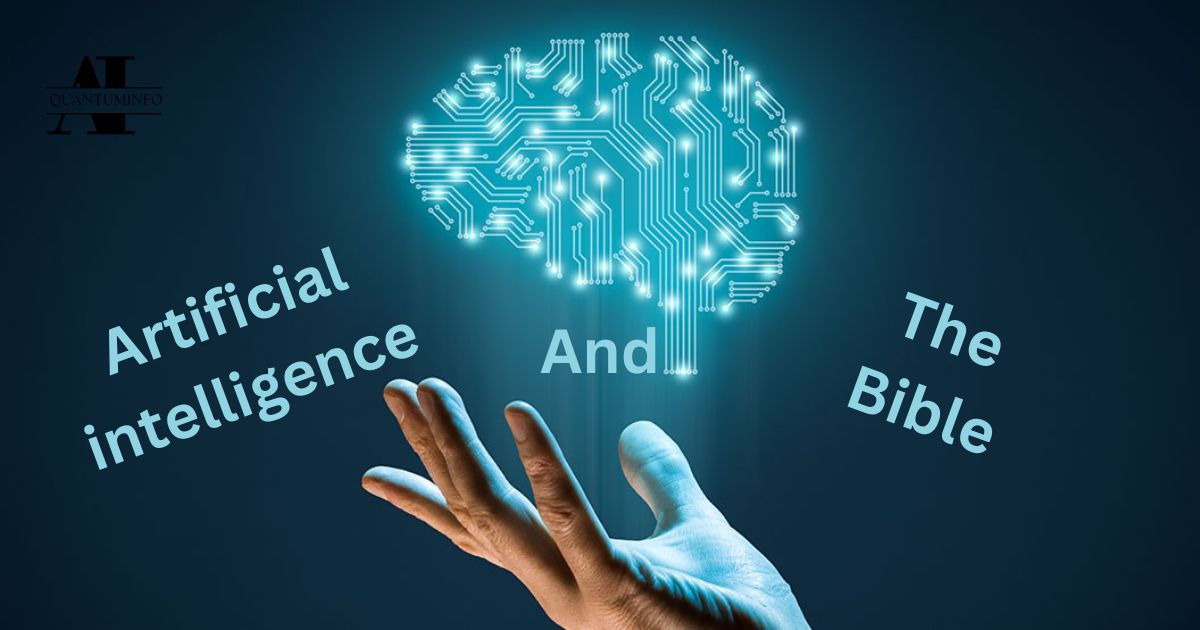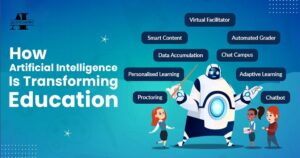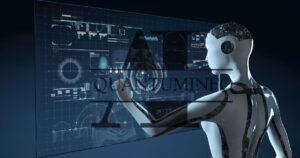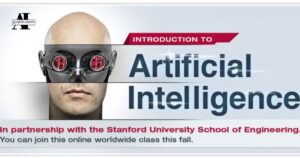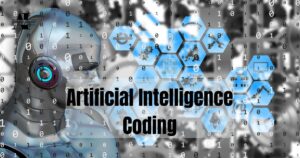Artificial intelligence (AI) technology allows machines to learn and make decisions. The Bible is a holy book that guides many people in faith and life. Exploring AI and the Bible together sparks new discussions on technology and spirituality. It offers a fresh perspective on how faith and modern development can coexist.
A world where modern technology meets ancient wisdom. Artificial intelligence (AI) and the Bible may seem like an unlikely pairing, but together, they spark interesting conversations. Can AI help us discover deeper insights from the Bible? Dive into the fascinating intersection of faith and innovation to discover how these realms can shape our future.
Imagine a realm where modern technology meets ancient scriptures. Artificial intelligence (AI) and the Bible may seem like an odd combination, but they spark fascinating conversations. Can AI help us gain deeper insights from the Bible? This unique combination of technology and faith has the potential to change our understanding and future.
Understanding Artificial Intelligence
What is AI?
Artificial intelligence refers to the simulation of human intelligence in machines designed to perform tasks that normally require human intelligence. This includes learning from data (machine learning), reasoning, problem-solving, and even natural language understanding.
AI in everyday life
AI pervades many aspects of our lives, from virtual assistants like Siri and Alexa to recommendation algorithms on streaming platforms. It enhances efficiency in various sectors including healthcare, finance, and transportation.
Biblical Perspectives on Technology
Technology in Biblical Times
The Bible does not explicitly mention advanced technologies such as AI. However, it provides insight into how humans have historically interacted with technology. For example, the building of the Tower of Babel (Genesis 11:1-9) shows early human desires and the use of technology to achieve greatness. The story illustrates themes of unity, pride, and the limits of human endeavor.
The role of wisdom and knowledge
In the biblical text, wisdom is highly valued. Proverbs 2:6 states, “For the Lord gives wisdom; from his mouth comes knowledge and understanding.” It emphasizes the importance of seeking wisdom and harmonizing knowledge with moral and ethical principles.
Ethical considerations of AI through a biblical lens

Responsibility and Liability
The Bible teaches that humans are the custodians of creation (Genesis 1:28). This principle extends to our use of technology. AI, as a product of human innovation, must be used willingly and responsibly, with a focus on benefiting humanity and avoiding harm.
The capacity for good and evil
Biblical teachings often discuss the dual potential of good and evil in human actions. Similarly, AI has the potential for great good, such as advances in healthcare and education, but it also poses risks, including job displacement and privacy concerns. The Bible’s emphasis on moral behavior and justice can guide the development and implementation of AI.
Ethical decision making.
AI systems, especially those involved in machine learning, can sometimes make decisions that reflect biases in their training data. This raises questions about ethics and morality in the AI decision-making process. Biblical principles encourage fairness and impartiality (Micah 6:8), suggesting that AI should be designed and monitored to uphold these values.
AI and spiritual practices.
AI in religious practice
AI is starting to play a role in religious practices, such as virtual religious services and chatbots designed to provide spiritual guidance. These technologies facilitate but also raise questions about the authenticity and depth of spiritual experiences.
Here, Sexy Artificial Intelligence
Human interaction and AI
The Bible places great emphasis on human relationships and community (Hebrews 10:24-25). AI cannot replicate the depth of personal connections and spiritual relationships. While AI can help spread religious teachings, it cannot replace the personal touch of human interaction.
The Future of AI and Its Alignment with Biblical Values
AI in Eschatological Perspective
Biblical prophecies about the end times (Eschatology) often include themes of transformation and judgment. While the Bible does not specifically predict AI, the broader concept of human development and its ultimate goal can be examined through these prophecies. The ethical use of AI can be seen as part of a larger narrative about the stewardship of humanity and the fulfillment of divine purposes.
Encouraging the development of ethical AI
Biblical teachings about justice, mercy, and humility can serve as guiding principles for the moral development of AI. By integrating these values into AI research and application, we can strive to create technologies that align with a vision of human flourishing and moral integrity.
Biblical Insights on Science and Technology
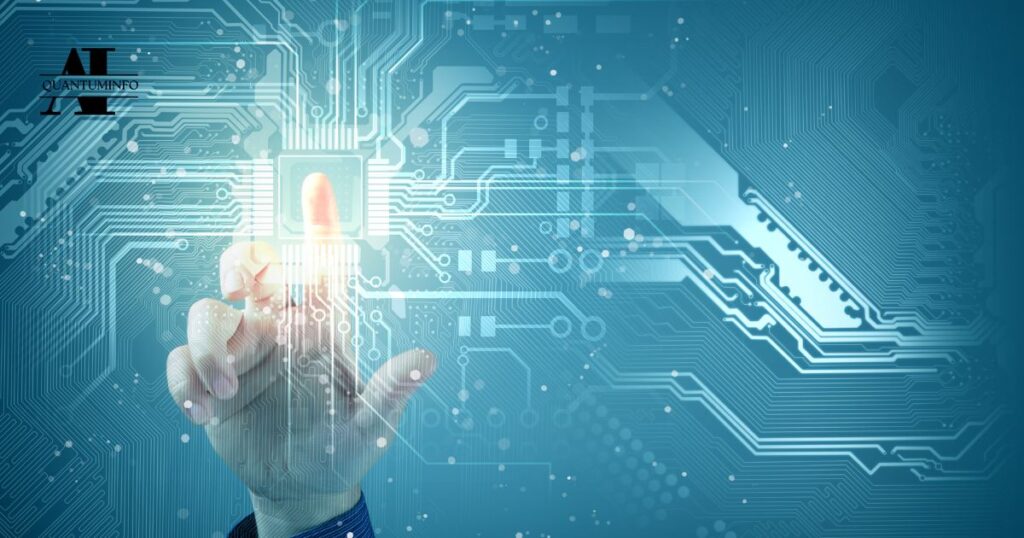
The Historical Perspective of Technology in the Bible
Although the Bible does not explicitly mention AI, it does refer to various forms of technology and human ingenuity. For example, the building of Noah’s Ark (Genesis 6:14-16) and the Tower of Babel (Genesis 11:1-9) reflect early human efforts to manipulate the environment and achieve ambitious goals.
Seeking wisdom
The Bible places great value on wisdom. Proverbs 3:13-18 describes wisdom as more valuable than silver and gold, suggesting that true wisdom leads to a more fulfilling life. This principle can guide how we approach the development and use of AI, emphasizing the need for thoughtful and ethical decision-making.
Ethical considerations in AI development
Responsibility and Moral Responsibility
The concept of responsibility in the Bible (Genesis 1:28) shows that humans are responsible for using their gifts and resources wisely. This extends to AI, where developers and users must ensure that the technology is used ethically and responsibly. The focus should be on creating systems that enhance human well-being and avoid harm.
Balancing innovation with ethical concerns
AI has the potential to bring significant positive change, but it also poses risks. Issues such as data privacy, algorithmic bias, and job displacement need to be carefully considered. Biblical principles of justice and fairness (Micah 6:8) can inform how we address these concerns, ensuring that AI benefits all people equally.
Here, The Rise of Artificial Intelligence Porn Generators
Prejudice and the Challenge of Justice
AI systems often reflect biases in their training data. This raises ethical questions about justice and discrimination. Biblical teachings on impartiality (James 2:1-9) highlight the importance of removing these biases to ensure that AI systems operate in a fair and just manner.
AI and its impact on human relations
The role of AI in social interaction
AI is increasingly being used to facilitate social interactions, such as through chatbots and virtual companions. While these technologies can provide convenience, they also raise questions about the authenticity of human interactions. The Bible emphasizes the importance of real relationships and community (Hebrews 10:24-25), suggesting that AI should complement rather than replace human interactions.
Enhance, not replace, human connection
AI can help in various aspects of life but cannot replace the depth of human relationships. The Bible’s teachings on love and compassion (1 John 4:7) remind us that technology should enhance human connection rather than diminish it.
Future Prospects: Aligning AI with Biblical Values
AI and the vision of a just society
Biblical teachings about justice and righteousness may guide the future development of AI. By aligning technological progress with these values, we can work towards a society where AI contributes to the common good and upholds ethical standards.
Encouraging ethical innovation
As AI continues to evolve, fostering a culture of ethical innovation is critical. This includes not only developing technologies responsibly, but also ensuring that they are used in ways that reflect biblical principles of integrity, compassion, and responsibility.
Frequently Asked Question
How can biblical principles influence the development of AI?
Biblical principles can guide the development of AI by emphasizing moral behavior, responsibility, and justice. These values can help ensure that AI technologies are developed and used responsibly.
What ethical concerns should be considered in the development of AI?
Key ethical concerns include data privacy, algorithmic bias, and effects on employment. Addressing these issues through a justice and fairness framework can help mitigate potential risks.
Can AI replace human relationships?
AI can facilitate communication but cannot replace the depth and authenticity of human relationships. Biblical teachings emphasize the importance of real connections and community.
How can AI be used ethically in religious contexts?
AI can help spread religious teachings and support spiritual practices, but it must be used in a way that complements rather than replaces the personal and communal aspects of faith.
What role does wisdom play in AI decision-making?
Wisdom involves making informed and ethical decisions. In AI, this means considering the long-term impact of the technology and ensuring that it conforms to ethical and moral standards.
Final Thoughts
The relationship between artificial intelligence and biblical teachings invites deep reflection on the nature of technology and ethics. Although AI represents the pinnacle of human intelligence, its development and use must be guided by ethical and moral principles found in ancient wisdom.
Biblical insights about responsibility, wisdom, and justice offer valuable guidance as we navigate the complex landscape of modern technology. As we continue to advance technologically, it is critical to ensure that these innovations are aligned with values that promote the common good and reflect our highest ethical standards.
By integrating biblical principles into the conversation on AI, we can foster a future where technology serves humanity in a way that is ethical and progressive.

